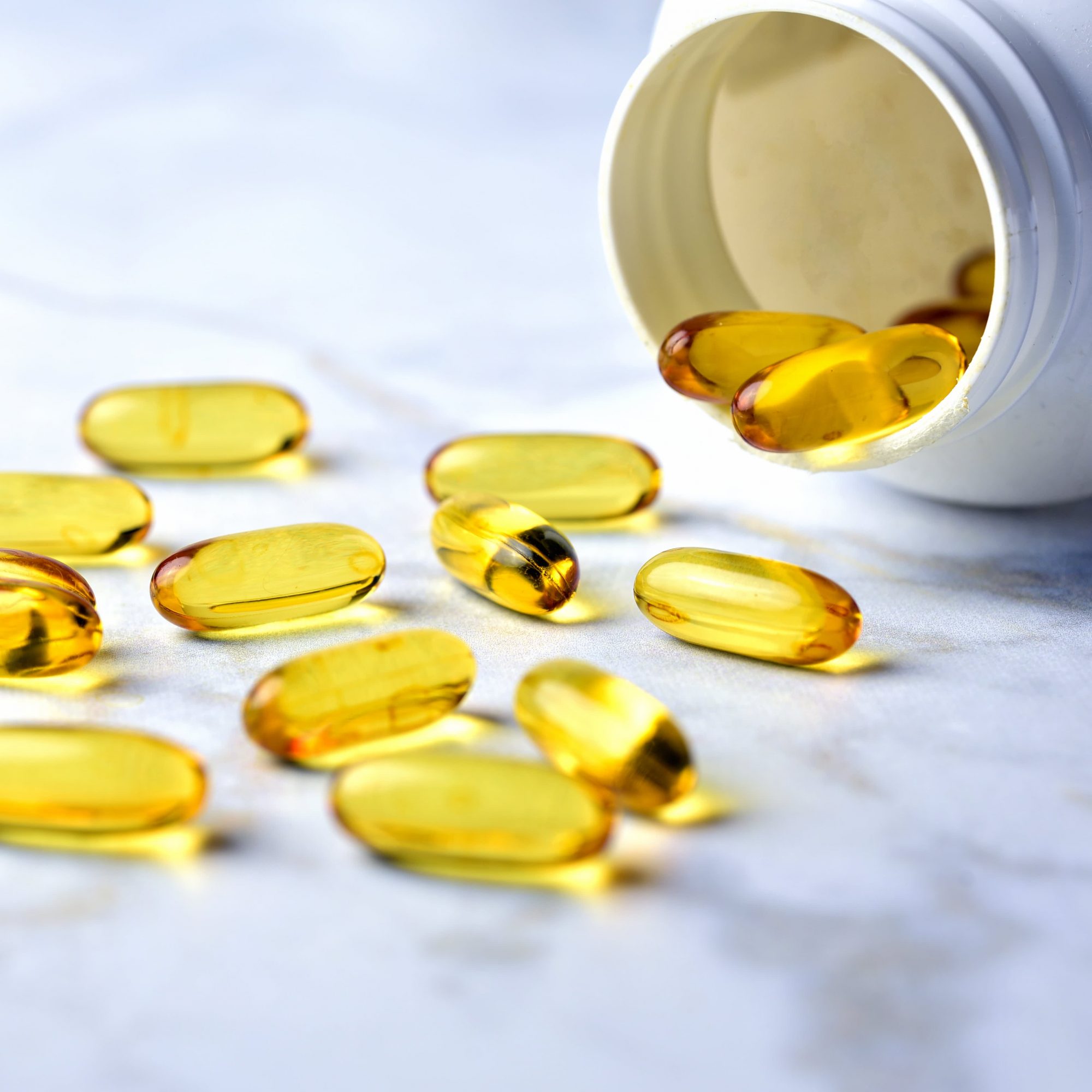
- POPSUGAR Australia
- Fitness
- Yes, You Can Take Too Much Vitamin D – Here’s What You Should Know Before Supplementing
Yes, You Can Take Too Much Vitamin D – Here’s What You Should Know Before Supplementing

Vitamin D has become the darling of the supplement world, and for good reason. Roughly 1 billion people worldwide have vitamin D deficiency, which has been linked with an increased risk of osteoporosis, depression, and infection. It only makes sense then that more people are reaching for supplements – but as it turns out, that’s not always a good thing.
The Institute of Medicine recommends that people under 70 get 600 IU of vitamin D per day. Yet, an Amazon search will turn up vitamin D supplements with doses as high as 10,000 IU per serving – well above the recommended intake. And, while you may have heard that it’s OK to mega-dose with certain vitamins, because the body will simply get rid of the excess, this rule doesn’t apply to vitamin D. Vitamin D is fat-soluble, meaning it’s absorbed in the same way that the body absorbs dietary fat. If you take more than you need, it gets stored away, specifically in areas like the liver and fat tissue.
Should you be worried? And how can you ensure that you’re getting just enough vitamin D, both from supplements and nature? POPSUGAR spoke with an expert to find out.
Related: Vitamin D Now Comes in a Spray, but Are These Supplements More Effective Than Pills?
What Are Some Natural Sources of Vitamin D?
There are a few different ways your body can get vitamin D: through the foods you eat, the supplements you take, and through exposure to the sun’s rays. When your skin is exposed to sunlight for a good amount of time, your body naturally makes vitamin D. However, SPF – in addition to protecting your skin from sun damage – blocks the rays that are essential to this process. Covering the skin with clothing, living in an area with a lot of shade, spending time indoors, and even having darker skin can also prevent your body from adequately making vitamin D.
Of course, this means that you need to get the “sunshine vitamin” elsewhere. While there aren’t many food sources of vitamin D, eating foods like salmon, mushrooms, milk, and fortified 100 percent orange juice can help you meet your daily quota. If you’re still not getting enough vitamin D, your doctor may recommend a supplement.
Can You Get Too Much Vitamin D?
Vitamin D is essential, but it’s entirely possible to get too much of a good thing. “Every nutrient has symptoms associated with deficiency (too little) and toxicity (too much),” Kristina Harris Jackson, PhD, RDN, director of research at OmegaQuant Analytics, LLC, told POPSUGAR. “While it’s possible to over-supplement with vitamin D, it’s not possible for most people to make too much vitamin D from the sun.” Getting too much vitamin D from food sources is also uncommon.
Once supplements come into the picture, you might overdo it – and over the long-term, that can lead to some unpleasant symptoms and outcomes, including high blood calcium levels, stomach pain, nausea, and kidney problems. Part of vitamin D’s role is to enhance calcium absorption. With excessive vitamin D, “calcium can start to build up in soft tissues and arteries, and the kidneys can get clogged up with calcium when trying to eliminate it,” Dr. Jackson explained.
Perhaps the most surprising outcome of taking too much vitamin D is bone loss. While maintaining healthy levels of this nutrient is essential to support bone health, getting too much may be harmful. In a study published in the Journal of the American Medical Association, people who took up to 10,000 IU of vitamin D every day for three years had lower bone mineral density in some areas of the body than those who took lower doses. There are many reasons this might be the case, including that elevated vitamin D may suppress a hormone that plays a role in calcium and phosphorus concentrations – two other key nutrients for bone health.
How Can I Safely Supplement With Vitamin D?
When it comes to supplements, most healthcare providers prefer to “test and not guess.” Meaning, you should have your vitamin D levels checked as part of your routine bloodwork and take a supplement only if you’re truly deficient and your doctor recommends it. That’s true even if you have risk factors for vitamin D deficiency, like darker skin, limited exposure to the sun, or poor dietary intake of vitamin D-rich foods.
If you decide to go out on your own, be careful not to overdo it. “I don’t recommend starting out taking more than 4,000 IU per day, which is the upper limit set by the Institute of Medicine,” Dr. Jackson said – because while it’s uncommon for people to mega-dose on vitamin D, it is possible. “Over-supplementing with vitamin D comes with risks, which is why it’s important to work with your healthcare provider when aiming to optimise your vitamin D status.”


